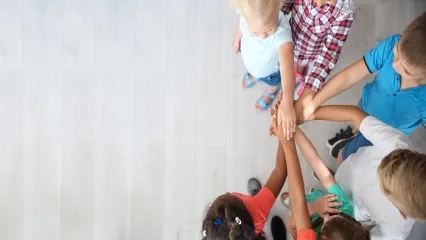Alo Yeditepe
Alo Yeditepe
Promising Developments in Childhood Cancers
Yeditepe University Koşuyolu Hospital Pediatric Oncology Specialist Dr. Asım Yörük stated that promising studies have been carried out to further improve the rates of recovery in childhood cancers. “While 50 years ago the cure rates for childhood cancers were less than 25 percent. This rate has increased significantly in the last 50 years and today the 5-year survival rate has risen to 80 percent.”
According to statistics, leukemia is one of the most common cancers in children. Yeditepe University Koşuyolu Hospital Pediatric Oncology Specialist Dr. Asım Yörük: "In order of frequency, brain tumors, lymphomas, neuroblastoma, kidney tumors, rhabdomyosarcoma, germ cell tumors, retinoblastoma, melanoma come later. In our country, leukemia is most common in children. Unlike the world statistics, brain tumors rank third after lymphomas, while lymphomas are more than twice as common in our country than the world statistics.”
"Decoding Cancer Cell"
Underlining that the developments in medical technology in recent years have increased the success in the diagnosis and treatment of childhood cancers, Dr. Asım Yörük: “Targeted therapies, laboratory studies conducted at the molecular level and advances in imaging technology are among the factors affecting treatment success.”
Taking the Classical Treatment Place
Defining immunotherapy as targeted treatments and oncolytic virus treatments as promising treatments developed recently, Dr. Asım Yörük: "The human body's immune system perceives cancer cells as foreign cells. Therefore, immunotherapy, which is used to strengthen the natural immune system, is shown as the most promising method for the future of cancer treatment. In terms of childhood cancers, instead of classical chemotherapy and radiotherapy, immunotherapy and personalized targeted treatments also have successful results in terms of healing of childhood cancers.”
First Cellular Immunotherapy: Car T-Cell
Stating that chimeric antigen receptor T-cell (CAR T-cell) therapy is accepted as one of the most important developments in the treatment of lymphoma in recent years, Yörük continued as follows:
"It was found to be effective in hematological diseases such as acute lymphoblastic leukemia and non-Hodgkin's lymphoma, which recurred as the first cellular immunotherapy in its class. Since the T cells used in this treatment are isolated from the cancer patient, there is no problem such as tissue incompatibility. Studies and applications on this subject are continuing and extremely promising results are being obtained. In some tumors such as neuroblastoma, research on CAR-T cell therapy is ongoing. In addition, various immunotherapy treatments are currently being applied for neuroblastoma, melanoma, and Hodgkin's lymphoma."
Studies on Targeted Treatments Continue
Although treatments directly targeting cancer cells are mostly used in adults, clinical trials for children continue, Dr. Asım Yörük: “Today, targeted treatments are used effectively in the treatment of "chronic myeloid leukemia". Treatment studies with monoclonal antibodies are ongoing in recurrent or resistant neuroblastoma patients and other treatment-resistant childhood cancers. The first experiments with the treatment of oncolytic virus in glioblastoma, a brain tumor, yielded good results. The studies continue.”
The most common childhood cancer in the world
- Leukemias 29%
- Brain Tumors 26%
- Lymphomas 8%
- Neuroblastoma 6%
- Wilms' Tumor 5%
- Bone tumors 3%
- Rhabdomyosarcoma 3%
- Germ cell tumors 3%
- Retinoblastoma 2%
- Melanoma 2%
- Others
The most common childhood cancer in our country
- Leukemias 31%
- Lymphomas
- CNS Tumors
- Neuroblastoma 7%
- Bone tumors 6.1%
- Soft Tissue Sarcoma 6%
- Other tumors 9%
Press Coverage: ntv.com.tr | milliyet.com.tr | karar.com
This content was prepared by Yeditepe University Hospitals Medical Editorial Board.
Alo Yeditepe





